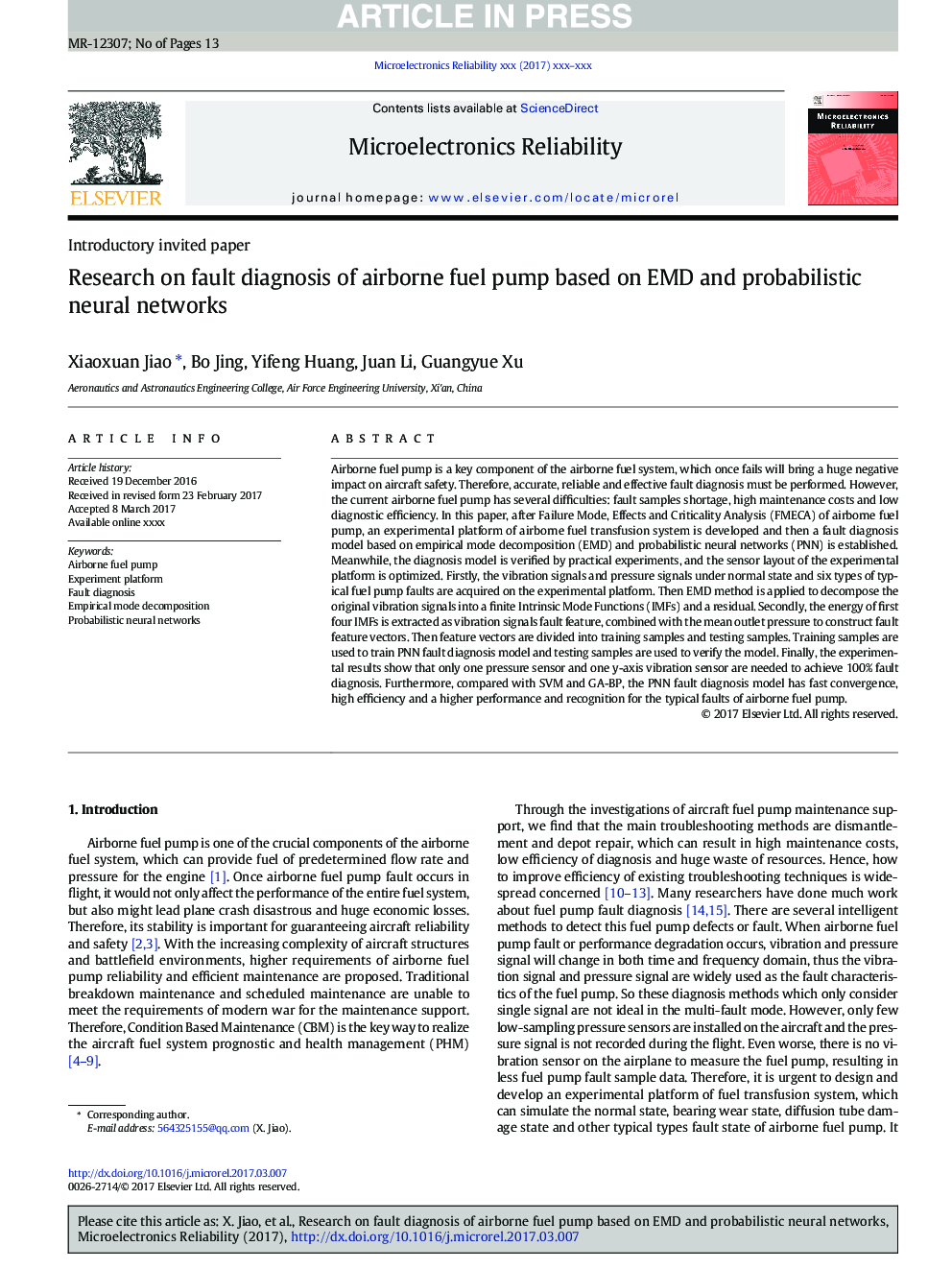| Article ID | Journal | Published Year | Pages | File Type |
|---|---|---|---|---|
| 4971400 | Microelectronics Reliability | 2017 | 13 Pages |
Abstract
Airborne fuel pump is a key component of the airborne fuel system, which once fails will bring a huge negative impact on aircraft safety. Therefore, accurate, reliable and effective fault diagnosis must be performed. However, the current airborne fuel pump has several difficulties: fault samples shortage, high maintenance costs and low diagnostic efficiency. In this paper, after Failure Mode, Effects and Criticality Analysis (FMECA) of airborne fuel pump, an experimental platform of airborne fuel transfusion system is developed and then a fault diagnosis model based on empirical mode decomposition (EMD) and probabilistic neural networks (PNN) is established. Meanwhile, the diagnosis model is verified by practical experiments, and the sensor layout of the experimental platform is optimized. Firstly, the vibration signals and pressure signals under normal state and six types of typical fuel pump faults are acquired on the experimental platform. Then EMD method is applied to decompose the original vibration signals into a finite Intrinsic Mode Functions (IMFs) and a residual. Secondly, the energy of first four IMFs is extracted as vibration signals fault feature, combined with the mean outlet pressure to construct fault feature vectors. Then feature vectors are divided into training samples and testing samples. Training samples are used to train PNN fault diagnosis model and testing samples are used to verify the model. Finally, the experimental results show that only one pressure sensor and one y-axis vibration sensor are needed to achieve 100% fault diagnosis. Furthermore, compared with SVM and GA-BP, the PNN fault diagnosis model has fast convergence, high efficiency and a higher performance and recognition for the typical faults of airborne fuel pump.
Related Topics
Physical Sciences and Engineering
Computer Science
Hardware and Architecture
Authors
Xiaoxuan Jiao, Bo Jing, Yifeng Huang, Juan Li, Guangyue Xu,
